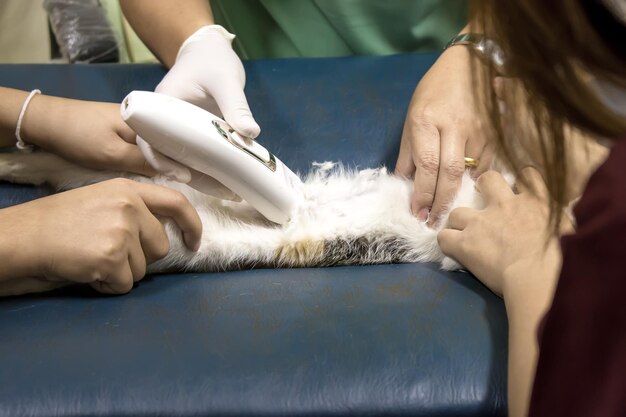Can You Smell Cancer? Understanding the Mysteries and Realities
When we think of cancer, our minds often leap to treatments, symptoms, or research breakthroughs. But a question that intrigues many, and remains less addressed, is whether cancer has a distinctive smell. Could something as complex and enigmatic as cancer have a scent that alerts us to its presence? This article delves into this intriguing topic, exploring how scent might play a role in the early detection and understanding of cancer.
The Connection Between Smell and Disease
The Science of Smell and Health
The human sense of smell is incredibly powerful, capable of detecting thousands of distinct aromas and providing insights into our environment. But did you know it could also offer clues about our health? Certain diseases are known to produce unique odors due to the metabolic changes they cause in the body. For instance, diabetic ketoacidosis can lead to a fruity breath odor, and liver disease might cause a musty smell. These changes can sometimes serve as a warning signal of underlying physiological shifts.
Can Cancer Produce a Smell?
As with other diseases, cancer can alter the body’s chemistry, potentially leading to distinctive smells. These odors are typically subtle and result from volatile organic compounds (VOCs) released either by the cancer cells themselves or as a result of their interaction with the body. The presence of certain VOCs in breath, sweat, or urine might hint at cancer and have been a focus of research in recent years.
Dogs: Nature’s Perfect Sniffers
Canines and Cancer Detection
Dogs possess an extraordinary sense of smell, with olfactory receptors far outnumbering those of humans. This remarkable ability has been harnessed in various ways, including the detection of cancer. Stories abound of dogs persistently sniffing or pawing at parts of their owners' bodies, only for the person to discover they have cancer at that site later.
Scientific Studies with Dogs
Numerous studies have been conducted to scientifically validate dogs' ability to detect cancer. In controlled environments, dogs have successfully identified cancerous samples, including those of breast, lung, and bladder cancers, due to their ability to detect specific VOCs. The hope is to utilize these findings to develop tools or methods for early cancer detection.
The Role of Electronic Noses
From Canines to Technology
While dogs have been inspirational, the goal of researchers is to create practical and reliable systems that mimic this natural ability. Enter the electronic nose (e-nose), a device designed to detect and identify VOCs present in exhaled breath or other samples. These devices are a promising area of research but are still in the developmental stages for medical applications.
Current Advances and Limitations
Electronic noses aim to offer non-invasive, cost-effective means of screening for cancer. Current studies suggest potential, but challenges remain in terms of sensitivity, specificity, and standardization. While the idea is compelling, more research is necessary to ensure reliability in diverse real-world scenarios.
Practical Implications and Future Directions
The Benefits of Scent-Based Detection
The primary advantage of using scent for cancer detection is its non-invasive nature. Tools like electronic noses could revolutionize early screening, potentially offering faster diagnostics and increased accessibility for patients worldwide. Early detection is crucial in the fight against cancer, often resulting in better outcomes and survival rates.
Challenges Ahead
However, significant hurdles remain before scent-based detection becomes routine. These include developing technology that can consistently distinguish cancer-related VOCs from those produced by other diseases or factors, and validating these findings across different populations and environmental conditions.
Potential for Personalized Medicine
The future may hold even more sophisticated applications, such as personalized medicine, where scent-based diagnostics tailor treatments to individual metabolic profiles. This would represent a significant leap in customized healthcare and precision medicine.
Understanding the Limits
The Cautionary Note
While the idea of smelling cancer is fascinating, it’s essential to understand the current limits. As of now, scent-based detection cannot replace traditional diagnostic techniques like imaging and biopsies. It's a promising adjunct but not a standalone solution. Moreover, it’s crucial for individuals not to rely on perceived smells for cancer diagnosis but to seek appropriate medical evaluation if they have concerns about their health.
The Role of Medical Professionals
Always consult healthcare providers for any symptoms or health changes. While research in this area is ongoing, established medical protocols and tests remain the cornerstone of effective cancer diagnosis and treatment.
Final Insights
The exploration of scent as a diagnostic tool for cancer represents a blend of cutting-edge research, historical anecdotes, and hopeful innovation. While we are only beginning to understand the potential of VOCs in medical diagnostics, the field is burgeoning with potential and excitement.
For now, the best action is awareness—recognizing unusual health changes and seeking timely medical advice. And while dogs or gadgets won't replace physicians anytime soon, they may become valuable allies in our ongoing battle against cancer.
Summary: Key Insights on Detecting Cancer Through Smell
- 🌬 Potential of VOCs: Certain cancers may release unique volatile organic compounds (VOCs) that create distinguishable odors.
- 🐶 Dogs to Devices: Dogs can detect cancer smells, inspiring research into electronic noses for non-invasive diagnostics.
- 🔬 Technology on the Horizon: E-nose development aims to complement traditional methods, offering quicker, affordable screening.
- ⚠️ Limitations: Currently, scent-based detection is supplementary and not a substitute for established diagnostic tools.
- ✅ Action Steps: Remain vigilant about health changes and consult healthcare providers for comprehensive evaluations.
Embracing innovation while relying on medical expertise can empower us in the endeavor to tackle cancer effectively.

Related Articles
- Are Breast Cancer Lumps Painful
- Are Chills a Sign Of Cancer
- Are Colon Spasms a Sign Of Cancer
- Are Lytic Lesions Always Cancer
- Are Polyps Cancer
- Can a Blood Test Detect Cancer
- Can a Ct Scan Detect Cancer
- Can a Dexa Scan Show Cancer
- Can a Gastric Emptying Scan Show Cancer
- Can a Lung Biopsy Cause Cancer To Spread
